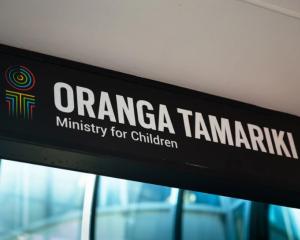The number of patients suffering injuries or errors in care at New Zealand hospitals and health care providers is on the rise.
The latest Health Quality and Safety Commission report on serious and adverse events has shown a 3.9 per cent rise in reported incidents.
The commission cited the number of people breaking hips in falls as a particular concern.
Serious adverse events generally resulted in harm to patients, according to the Commission, which said this year's increase was possibly due to better reporting from healthcare providers.
Serious adverse events led to patients needing significant additional treatment, were life-threatening, or led to unexpected death or major loss of function.
Organisations including public and private hospitals, old age homes, and hospices provided the statistics from July 1 last year to June 30 this year.
In the 2013-2014 year, 454 serious adverse events were reported. There were 437 cases in the previous annual report. The number of reporter incidents has risen most years since 2006-2007, when 182 were reported.
The Commission said falls were the most frequent cause of harm, making up 55 percent of all cases.
Almost forty per cent of falls resulted in broken hips. Professor Alan Merry, the commission chairman, said the number of broken hips following falls in hospital was concerning.
"Ninety-eight people suffered a broken hip in hospital. This rate of harm is far too high, and equates to almost two patients every week suffering such an injury. This is very disappointing given the considerable effort going into reducing harm from falls, and shows this must continue to be an area of high priority for the Commission and the sector."
But Prof Merry said it was also "encouraging to see the work and resources the health sector has put into getting better at reporting incidents of patient harm".
The Commission guided district health boards in the management and analysis of reportable events. It said its role was to ensure health care providers could learn from mistakes.
"Patients who are harmed during health care have a right to understand what happened and to expect that everything possible will be done to prevent the same thing from happening to someone else in the future," Prof Merry said.
He said the increase in serious adverse events probably reflected an "increasing commitment" to reporting such events.
"We expected the number of [serious adverse events] to increase as health providers improved their reporting systems, and that seems to be happening."
.
Serious adverse incidents
*248 cases of serious harm from falls
*98 broken hips
*22 serious head injuries
*10 fractured ribs
*30 cases involving medication problem
*158 cases involving clinical management, including delays in treatment, assessment, diagnosis and observation
*5 other patient accidents (not falls)
*454 serious adverse events at district health boards reported.
*104 serious adverse events at other providers reported.
Source: Health Quality & Safety Commission












